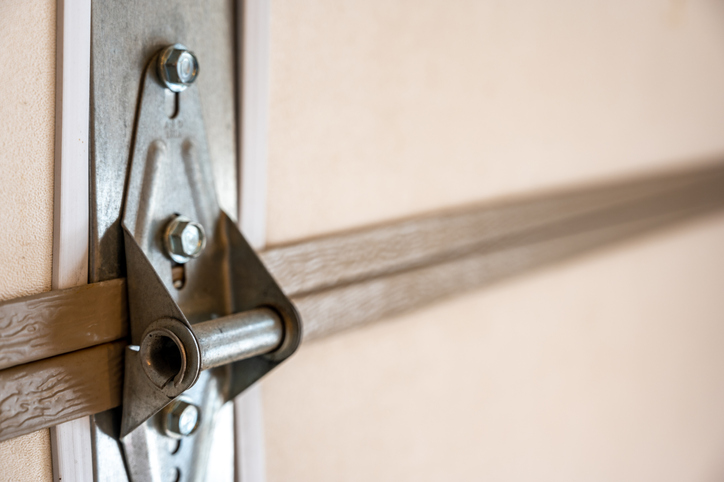
Garage doors do a lot of heavy lifting so it’s no surprise when they start squeaking and groaning. If your garage door is starting to complain, it’s time to find the source of the noise and get it taken care of. Although the sounds can be annoying, if left untreated, you could end up with a much larger problem on your hands. Follow these steps to troubleshoot your noisy garage door.
Check the Speed
Typically, garage doors should open and close in about 12 to 15 seconds. If yours is taking upwards of 20 seconds, it’s time to take a closer look. The most common solution is lubrication. Make sure to lubricate all the correct places to ensure smooth movement. Most garage doors are also set at the lowest factory setting for speed. If lubrication doesn’t work, check your owner’s manual to adjust the door’s speed via the speed dial.
Tighten Things Up
The average garage door has over 100 nuts and bolts holding things together. Over time, they loosen and can cause your garage door to make noise and wobble as it moves up and down. If this is the case, grab your wrench or socket set and tighten all the nuts and bolts that are loose. This should eliminate any rubbing sounds or wobbly motions.
Check Your Rollers and Hinges
If your garage door is still squeaking, grinding, or shaking, check your rollers and hinges. Do they look worn down? Are the rollers stuck or are they rolling freely? Oftentimes, rollers can wear down and bind up, causing them to slide instead of rolling properly. If your rollers are damaged, they can be easily replaced. If your hinges are damaged, it’s best to call a professional. Give us a call at Gold Label Door and we’ll be happy to replace them for you.
Check the Chain
Do you hear a sprocket sound coming from your chain? Take a closer look to make sure that your chain is working properly. It should be 1/2″ or 1/4″ above the base of the rail, depending on the type of rail you’ve got. Check your manual to make sure your chain has the correct tension and placement.
Lubricate all the Right Spots
Lubricating the appropriate spots on your garage door is one of the most common ways to solve your noise problems. When a garage door opens and closes, many moving parts rub, roll and stretch against one another. In order to do this effectively, these parts must be lubricated several times a year. Check the following spots and lubricate them as needed:
Rollers
If your rollers are noisy or seize up, spray some lubrication directly on them. Don’t make the common mistake of lubricating the tracks. Too much can cause the rollers to skip and skid, and pick up dirt in the process, leaving you with a garage door that jerks and lurches as it moves.
It’s also important to take caution when lubricating nylon rollers, as lubrication can break down the plastic. If the rollers are still noisy after lubricating them, they probably need to be replaced.
Springs
Your springs do a lot of work and need to be sprayed with lubricant several times a year. Take care in spraying them lightly or you’ll end up with a slippery, drippy mess on the garage floor.
Hinges
Check your hinges for wear. If they are in good shape, spray them with a layer of synthetic lubrication. If your hinges are worn or noisy after lubrication, you may want to call a professional to replace them. Working with garage door hinges can be dangerous.
When your garage door starts to complain, it’s important to listen. Whether it’s grinding, squeaking or rubbing, these unpleasant noises can provide clues to a potentially bigger problem down the road. Give your garage door a quick check and if you need further assistance, we’re happy to help. Contact us or give us a call at 303-279-7234 today.


